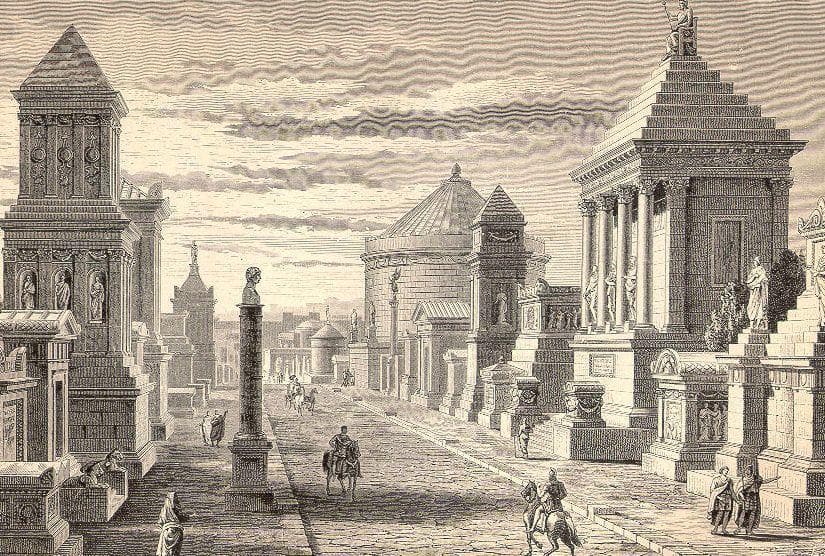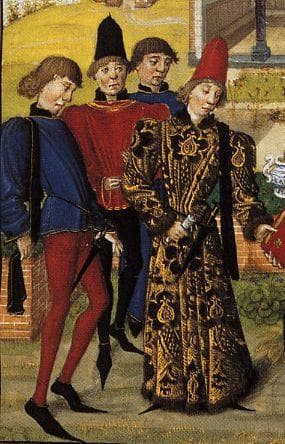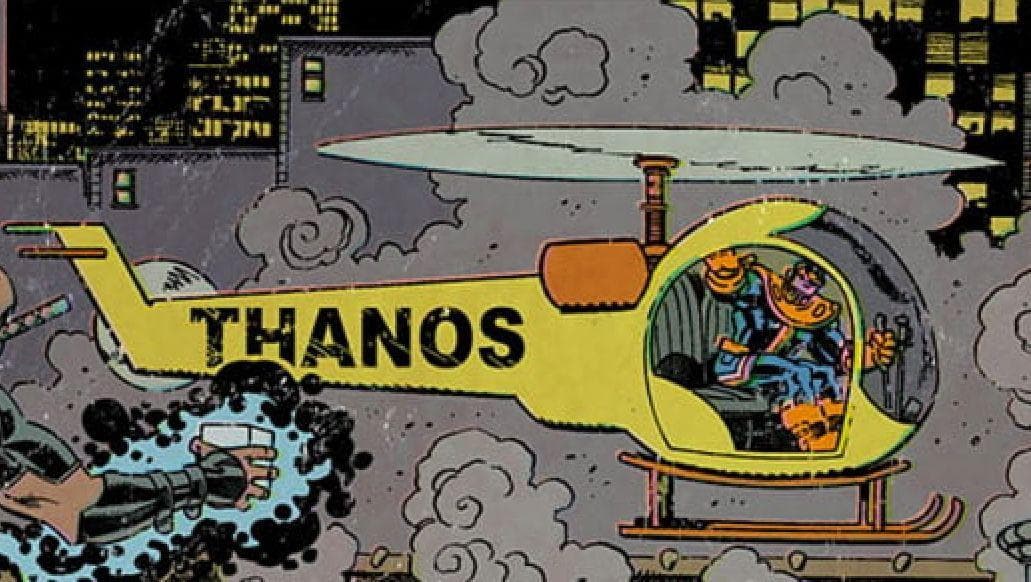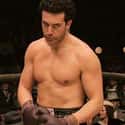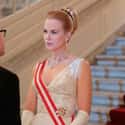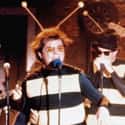-
(#3) Cinderella Man
- Russell Crowe, Renée Zellweger, Paul Giamatti, Craig Bierko, Paddy Considine, Bruce McGill, Ron Canada, David Huband, Connor Price, Ariel Waller, Patrick Louis, Rosemarie DeWitt, Linda Kash, Nicholas Campbell, Gene Pyrz, Matthew G. Taylor, Jake Richards, Fulvio Cecere, Duff MacDonald
The climax of 2005's Cinderella Man features protagonist James J. Braddock (Russell Crowe) fighting and beating Max Baer (Craig Bierko) to become heavyweight champion. While this is an accurate portrayal of what happened in reality, Baer's son Max Baer Jr. took offense at director Ron Howard's depiction of his father.
In the movie, Baer is mean, bloodthirsty, and feels no shame about telling Braddock's wife he'll finish off her husband and then take her as his own wife. Baer Jr. claimed his father's personality was very different than that seen in the movie and was offended he had been turned into a villain. "I have great respect for Ronny Howard," Baer Jr. said. "But he never called me for any factual information about my father. They distorted his character. They didn't have to make him an ogre to make Jimmy Braddock a hero."
Although the film accurately shows Baer wearing a Star of David on his boxing trunks, Baer also took offense to the movie failing to mention he did so to show solidarity with Jewish boxing fans in New York. Many members of the Jewish community believed Baer to be a hero after he fought and beat Max Schmeling, the pride of the Third Reich.
In the movie, Baer brags about how he killed boxer Frankie Campbell in the ring, which helps cement him as the film's swaggering, hateable villain. But that incident was actually hugely traumatic for Baer.
"My father cried about what happened to Frankie Campbell," Baer Jr. remembered. "He had nightmares. He helped put Frankie's children through college."
Others backed up Baer Jr.'s claims about his father's personality, often referring to him as "lovable clown." Lightweight champ Tommy Loughran recalled, "Max was the most misunderstood fighter of them all. He was the nicest guy. He had the heart of a lion."
-
(#14) Grace of Monaco
- Nicole Kidman, Tim Roth, Paz Vega, Parker Posey, Milo Ventimiglia, Frank Langella, Derek Jacobi, Robert Lindsay, Geraldine Somerville, Jeanne Balibar, Roger Ashton-Griffiths, Nicholas Farrell, Olivier Rabourdin, André Penvern, Pascaline Crêvecoeur
Grace Kelly was a Hollywood star seen in classics like High Noon and Rear Window before she married Prince Rainier III of Monaco in 1956 and retired from acting. This transition in her life became the focus of the 2014 film Grace of Monaco, which stars Nicole Kidman as Kelly.
Not only did producers and director Olivier Dahan publicly fight about the movie, but the royal family of Monaco spoke out against it. "The Princely family does not in any way wish to be associated with this film which reflects no reality and regrets that its history has been misappropriated for purely commercial purposes," they said.
The family claimed their attempts to correct errors in the script were ignored and the trailer for the film "appears to be a farce and confirms the totally fictional nature of this film."
Both Kidman and Dahan brushed off the royal family's claims, insisting the movie was meant to be a work of fiction. "This is not a biopic or a fictionalized documentary of Grace Kelly, but only a small part of her life where she reveals her great humanity as well as her fears, and weaknesses," Kidman said.
"I am an artist," Dahan said, addressing the family's concerns. "I understand their point of view. After all, it is their mother. I do not want to provoke anyone. Only to say that it's cinema."
The family may have felt satisfaction with the film's ultimate fate. After flopping at the Cannes Film Festival, the movie had so many problems that it ended up airing on Lifetime rather than in movie theaters. Original screenwriter Arash Amel was so displeased with what had been done to his work, he live-tweeted throughout the broadcast, writing gems like, "The whole tone of this movie was for some reason Vertigo. Which Grace Kelly was never in."
-
(#5) Once Upon a Time in Hollywood
- Leonardo DiCaprio, Brad Pitt, Margot Robbie, Kurt Russell, Dakota Fanning, Damon Herriman, Austin Butler, Emile Hirsch, Scoot McNairy, Luke Perry, Al Pacino, Nicholas Hammond, Spencer Garrett, Mike Moh, Lena Dunham, Damian Lewis, Bruce Dern, Timothy Olyphant, Zoe Bell, Michael Madsen, James Remar, Brenda Vaccaro, Margaret Qualley, Julia Butters, Samantha Robinson, Lorenza Izzo, Costa Ronin, Rumer Willis, Rafał Zawierucha, Clifton Collins, Keith Jefferson, Maya Hawke, Sydney Sweeney, Dreama Walker, Victoria Pedretti, Madisen Beaty
In Once Upon a Time in Hollywood, director Quentin Tarantino recreated 1960s tinsel town for a fictional story that also includes depictions of real people. Martial art film star Bruce Lee is among these (played by Mike Moh) and fights stuntman protagonist Cliff Booth (Brad Pitt), who throws Lee into the side of a car.
According to Lee's daughter, Shannon, the personality of the character in the film is nothing like her father. She claims, "He comes across as an arrogant *sshole who was full of hot air and not someone who had to fight triple as hard as any of those people did to accomplish what was naturally given to so many others."
In real life, Lee was born in America and grew up in Hong Kong before returning to America to teach martial arts and appear in films. He had to fight for his first role on TV's The Green Hornet, was paid less for his work, and received fewer lines because of his race. It's this time period that's depicted in the movie.
According to Shannon:
I can understand all the reasoning behind what is portrayed in the movie. I understand that the two characters are antiheroes and this is sort of like a rage fantasy of what would happen... and they're portraying a period of time that clearly had a lot of racism and exclusion. I understand they want to make the Brad Pitt character this super bad-*ss who could beat up Bruce Lee. But they didn't need to treat him in the way that white Hollywood did when he was alive.
Not only did Shannon object to Tarantino's depiction of her father, but so did basketball legend and Lee's Game of Death co-star Kareem Abdul-Jabbar. "Tarantino has the artistic right to portray Bruce any way he wants, but to do so in such a sloppy and somewhat racist way is a failure both as an artist and as a human being," he said. "That's what makes the Bruce Lee scenes so disappointing, not so much on a factual basis, but as a lapse of cultural awareness."
China has agreed with these claims and, after Shannon voiced complaints to the country's National Film Administration, it asked Tarantino to make cuts to the scene featuring Lee to make his depiction less insulting. When the director said no, China refused to release the film in their country.
-
(#9) The Buddy Holly Story
- Gary Busey, Don Stroud, Charles Martin Smith, William Jordan, Maria Richwine, Conrad Janis, Albert Popwell, Amy Johnston, Jim Beach, John F. Goff, Fred Travalena, Dick O'Neil, Stymie Beard, M.G. Kelly, Paul Mooney, Bill Phillips Murray, Freeman King, Steve Camp, Jody Berry, Robert Christopher, Arch Johnson, Neva Patterson
Executive producer Ed Cohen had many excuses for Buddy Holly's family and friends being upset at his depiction in The Buddy Holly Story, from budget and time constraints to the fact movies can invent their own reality.
"Whatever we put up there on the screen will be the truth," Cohen said. "Ask moviegoers who invented the telephone. They'll tell you that Don Ameche did." This is a reference to the actor, who once played Alexander Graham Bell.
The Buddy Holly Story is based on a book by John Goldrosen, which is not considered an official biography and, according to original Cricket Jerry Allison, the movie got basic facts incorrect. Allison says that the movie suggests the Crickets was a 12-person band when, in fact, "there weren't 12 Crickets during Buddy's [entire] career."
The movie also shows Holly playing with a full orchestra on his final tour when, in reality, he only recruited three people. The film also implies Holly wrote all his music himself without any help and completely omits Norman Petty, a producer who greatly helped Holly's career.
Holly's family was hurt by the film's implication they held no importance to Holly. "We were disappointed by the movie because it wasn't what we thought it was going to be," Holly's mother, Ella, said. "That church scene [where Buddy and rock and roll are condemned from the pulpit] could never have happened. Buddy was close to his pastor, the Reverend Ben Johnson, and he was a member of the Tabernacle Baptist Church."
While the movie depicts Holly's family as against his musical career and constantly telling him to quit, Holly's parents said this was untrue. "We were behind Buddy 100%," his father recalls. "We were very anxious for him to make a career as a singer. We were his biggest fans."
Although the filmmakers told the family they'd be able to view the script before filming, the filmmakers allegedly never followed through. "They didn't ask us about a thing," Holly's brother Larry claims. "I didn't feel that was my brother up there on the screen. We weren't happy with the movie at all."
-
(#7) Wired
- Michael Chiklis, J. T. Walsh, Alex Rocco, Ray Sharkey, Patti D'Arbanville, Lucinda Jenney, Jere Burns
When Bob Woodward wrote the John Belushi biography Wired in 1984, many thought the legendary reporter who helped uncover Watergate would shed new light on the comedian's life. However, when the book was released, both Belushi's family and friends spoke out against the inhuman character Woodward presented in his work.
Members of Belushi's family were so angry, John's brother, Jim, even called Woodward a "c*cksucker." Belushi's wife, Judy, originally hired Woodward to write the book, since she valued his investigative skills and thought he might uncover any hidden facts about the way the police handled her husband's passing. Despite her intentions, Belushi's family and friends accused the book of focusing on his problems with substances and not bothering to examine the talented man behind them.
"I hated Woodward's book because I don't believe he made an honest attempt to understand John, who despite his sometimes gruff exterior was a gentle soul," fellow comedian Al Franken said.
When Woodward's book was made into a film in 1989, the criticism continued. Despite the negative feedback received, bidding rights for the book reportedly reached $2 million. Filmmakers cast the then-unknown Michael Chiklis as Belushi, and the film opens with him waking up in the morgue and running around naked, screaming.
It becomes a sort of meta-tale as it includes Woodward's investigation, gives Belushi a guardian angel friend, and depicts the comedian as a casual bigot. Although it probably has nothing to do with the book's criticism and was judged by its own failures, the movie has a 4% critic rating on Rotten Tomatoes.
Dan Aykroyd called the book "exploitation, pulp trash," and Judy claimed, "The man in Wired is not the man I knew... He was a very likable person. He had a terrific presence, and Woodward missed all that."
-
(#11) Nina Simone's Family Was Not Happy About Zoe Saldana Being Cast In 'Nina'
In order to play legendary singer and civil rights activist Nina Simone in Nina, Dominican and Puerto Rican actress Zoe Saldana made her face darker and wore a prosthetic that flattened her nose.
For Simone's daughter Simone Kelly, this echoed a painful reality in her mother's life. "My mother was raised at a time when she was told her nose was too wide, her skin was too dark," Kelly said. "Appearance-wise this is not the best choice."
Saldana defended her acceptance of the role, saying, "It's more complex than just 'Oh, you chose the Halle Berry look-alike to play a dark, strikingly beautiful, iconic Black woman.' The truth is, they chose an artist who was willing to sacrifice herself. We needed to tell her story because she deserves it."
Simone's family, however, refused to stop their complaints and repeatedly tweeted angry responses to the movie's trailer. Their backlash against Saldana continued after she tweeted the Simone quote: "I'll show you what freedom is to me - No Fear... I mean, really, no fear."
The family responded, "Cool story but please take Nina's name out your mouth. For the rest of your life."
New Random Displays Display All By Ranking
About This Tool
Our data comes from Ranker, If you want to participate in the ranking of items displayed on this page, please click here.

